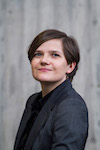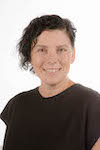Archaea
Speaker of the special group

Universität Regensburg
Institut für Biochemie, Genetik und Mikrobiologie
Lehrstuhl für Mikrobiologie & Archaeenzentrum
Universitätsstraße 31
93053 Regensburg
dina.grohmann@ur.de
Deputy speaker of the special group

Medizinische Universität Graz
Diagnostik & Forschungsinstitut für Hygiene, Mikrobiologie und Umweltmedizin
Neue Stiftingtalstraße 6
8010 Graz
christine.moissl-eichinger@medunigraz.at
The Archaea specialist group was founded in 2005 and currently has around 100 members. It is intended to provide a discussion forum for those interested in archaea and to facilitate scientific exchange.
Archaea form a coherent but physiologically and ecologically very diverse group of microorganisms. They were recognized in 1977 by Carl Woese as the 3rd domain of life alongside bacteria and eukaryotes. In Germany, Otto Kandler, Karl Otto Stetter and Wolfram Zillig were significantly involved in the development of this concept. Many archaea live in extreme biotopes and studies on their specific properties have revolutionized our knowledge of life under extreme conditions. However, archaea are also found in moderate biotopes and play an important role in methane formation and the nitrogen cycle. Research into their ecology, physiology, energetics, but also their evolution and phylogeny is still worthwhile. They offer properties that are also of interest for application-oriented questions. New cell wall materials, new metabolic pathways and novel cell structures have been discovered here, and the enzymes from hyperthermophilic archaea are used above all in molecular biology.
In summer 2005, an international archaea conference was organized in Schloss Hohenkammer near Munich, which was an important presentation forum. Regular meetings of molecularly oriented archaea researchers in German-speaking countries are currently being held as part of the DFG-funded SPP "Archaea", and regular workshops and mini-symposia are planned at the VAAM conferences.

